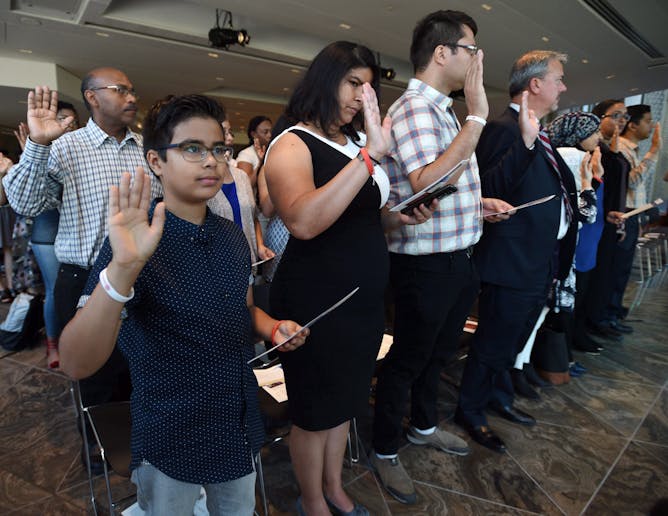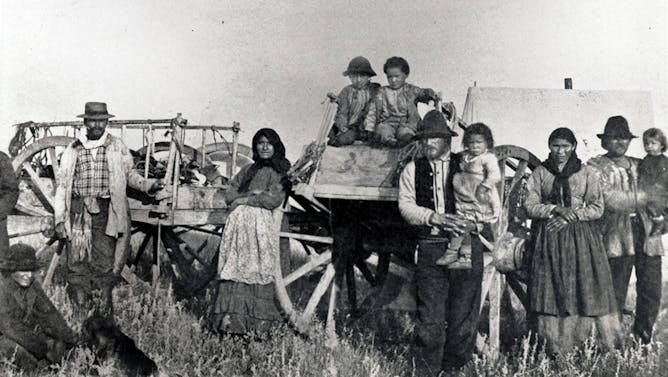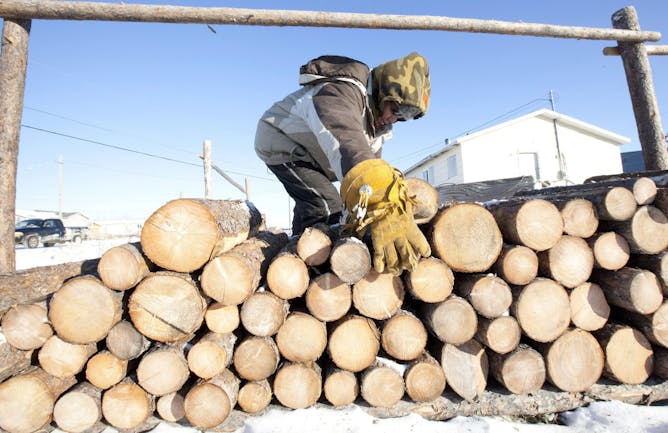|
Anyone who has worked with me over the last 15 years knows I’m a bit of a census nerd. I’m fascinated with the reams of data that is released every five years – it’s an amazing microscope into our nation. On Wednesday, Statistics Canada released new info on immigration and Indigenous people in Canada. The Conversation Canada lined up some academics who worked very hard with us to publish their analyses on the same day the new census data was released.
Our first census article comes from Arvind Magesan, an economist from the University of Calgary. Prof. Magesan writes about the wage gap between immigrants and those Canadians who have been here for at least three generations. Besides identifying the gaps, he delved deeper into the data to try to determine why it existed. One possible reason: whether first- and second-generation immigrants speak English at home.
Our second census-related article is by Darryl R. J. Leroux of Saint Mary’s University and Adam Gaudry of the University of Alberta and it looks at the increase in the number of people in Eastern Canada claiming Métis heritage. It’s a controversial issue and one they explain as “settler self-indigenization.”
Elsewhere, Michael J. Armstrong and Teju Herath of Brock University explain the difference between regular computer viruses and the phenomenon known as ransomware – including the outbreak known as “Bad Rabbit” that is currently running across Russia.
And finally, Jatin Nathwani of the University of Waterloo looks at the problem of remote communities – most of them home to Indigenous people – that are dependent on diesel fuel for electricity and oil for heating. Bringing sustainable and clean energy to these communities would not only be better for the environment, “it would signal a bold commitment to Indigenous peoples and action towards reconciliation.”
Regards,
|

New census data gives insight into Canada’s immigrant population, including how English language proficiency can impact wages. Here, a group of new Canadians take part in a citizenship ceremony in Ottawa in September.
(THE CANADIAN PRESS/Sean Kilpatrick)
Arvind Magesan, University of Calgary
New census data provides a chance to understand why immigrants earn lower wages than Canadians who have been here for many generations. Whether immigrants speak English at home may be a clue.
|

Métis Family and a Red River Cart, 1883.
(State Historical Society of North Dakota, A4365)
Darryl R. J. Leroux, Saint Mary’s University; Adam Gaudry, University of Alberta
New census data sheds light on the country's Indigenous population. In Eastern Canada, the rise in people claiming to be “Métis” is a controversial case of "settler self-indigenization."
|

Staff at the Korea Internet and Security Agency in Seoul, South Korea monitor possible ransomware cyberattacks in May 2017.
(Yun Dong-jin/Yonhap via AP)
Michael J. Armstrong, Brock University; Teju Herath, Brock University
Like legitimate e-commerce, ransomware e-crime is increasing in scale, value and sophistication.
|

Many homes in remote Indigenous communities rely on wood or diesel for heating.
THE CANADIAN PRESS/Adrian Wyld
Jatin Nathwani, University of Waterloo
More than 200 remote communities in Canada rely on diesel fuel for energy. Cleaner options could fuel a better quality of life.
|
Politics
|
-
Lino Camprubi, Max Planck Institute for the History of Science
Devoting all energies to fight over an imaginary border deflects attention from the real issues.
|
|
Business + Economy
|
-
Selin Malkoc, The Ohio State University
According to new research, the way you respond could determine whether or not you'll repeat the same mistake in the future.
|
|
Science + Technology
|
-
Peter Frandsen, University of Copenhagen
The two species mated 500,000 years ago, leaving a genetic mark to this day. This knowledge could help save them from extinction.
|
|